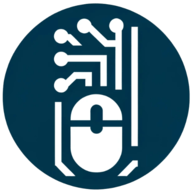Welcome to this comprehensive guide, specifically designed to provide essential tips for thriving as a software developer. This blog post will delve into various aspects of software development, from mastering the basics to staying updated with the latest trends. Whether you're a seasoned developer or just starting, you'll find valuable insights to enhance your skills and productivity.
Mastering the Basics
As a software developer, you must have a solid understanding of the basics. These include programming languages, algorithms, data structures, and databases. You should strive to be proficient in at least one programming language. Python, Java, and C++ are among the most popular choices.
Algorithms and data structures form the backbone of software development. They help you solve complex problems efficiently. Understanding how to use them effectively can significantly improve your coding skills.
Databases are another crucial aspect of software development. You should be familiar with SQL and NoSQL databases. Knowing how to design and manage databases can make you a more versatile developer.
Embracing Continuous Learning
The tech industry evolves at a rapid pace. New technologies, frameworks, and methodologies are constantly emerging. To stay relevant, you must embrace continuous learning.
Online platforms like Coursera, Udemy, and Pluralsight offer a plethora of courses on various topics. You can also attend webinars, workshops, and conferences to learn from industry experts.
Reading books and technical blogs can also help you stay updated. Websites like Medium, Dev.to, and Hacker Noon publish high-quality articles on software development.
Practicing Regularly
Practice is key to becoming a proficient software developer. Regular coding can help you understand concepts better and improve your problem-solving skills.
You can participate in coding challenges on platforms like HackerRank, LeetCode, and CodeSignal. These platforms provide problems of varying difficulty levels, which can help you improve your coding skills.
Working on personal projects is another great way to practice. It allows you to apply what you've learned and gain hands-on experience.
Collaborating and Networking
Collaboration and networking are essential for software developers. They can help you learn from others, get feedback on your work, and open up new opportunities.
You can collaborate with others on open-source projects. Platforms like GitHub and GitLab are great for this. They allow you to contribute to existing projects or start your own.
Networking can be done through social media, meetups, and conferences. LinkedIn, Twitter, and Reddit are popular platforms for networking in the tech industry.
Prioritizing Health and Well-being
While focusing on your career, it's important not to neglect your health and well-being. Long hours of coding can lead to physical and mental health issues.
Ensure you take regular breaks during your workday. This can help prevent eye strain and mental fatigue.
Physical exercise is also important. It can help reduce stress and improve your overall health.
Developing Soft Skills
Soft skills are often overlooked by software developers, but they are just as important as technical skills. They can help you work better in a team, communicate effectively, and manage your time efficiently.
Communication skills are crucial for understanding requirements, explaining your ideas, and giving presentations.
Time management skills can help you meet deadlines and balance multiple tasks. Tools like Trello, Asana, and Jira can help you manage your tasks effectively.
Wrapping Up: Thriving as a Software Developer
In conclusion, thriving as a software developer requires a combination of technical skills, continuous learning, regular practice, networking, and soft skills. It's also important to prioritize your health and well-being. By following these tips, you can enhance your skills, increase your productivity, and have a successful career in software development.

